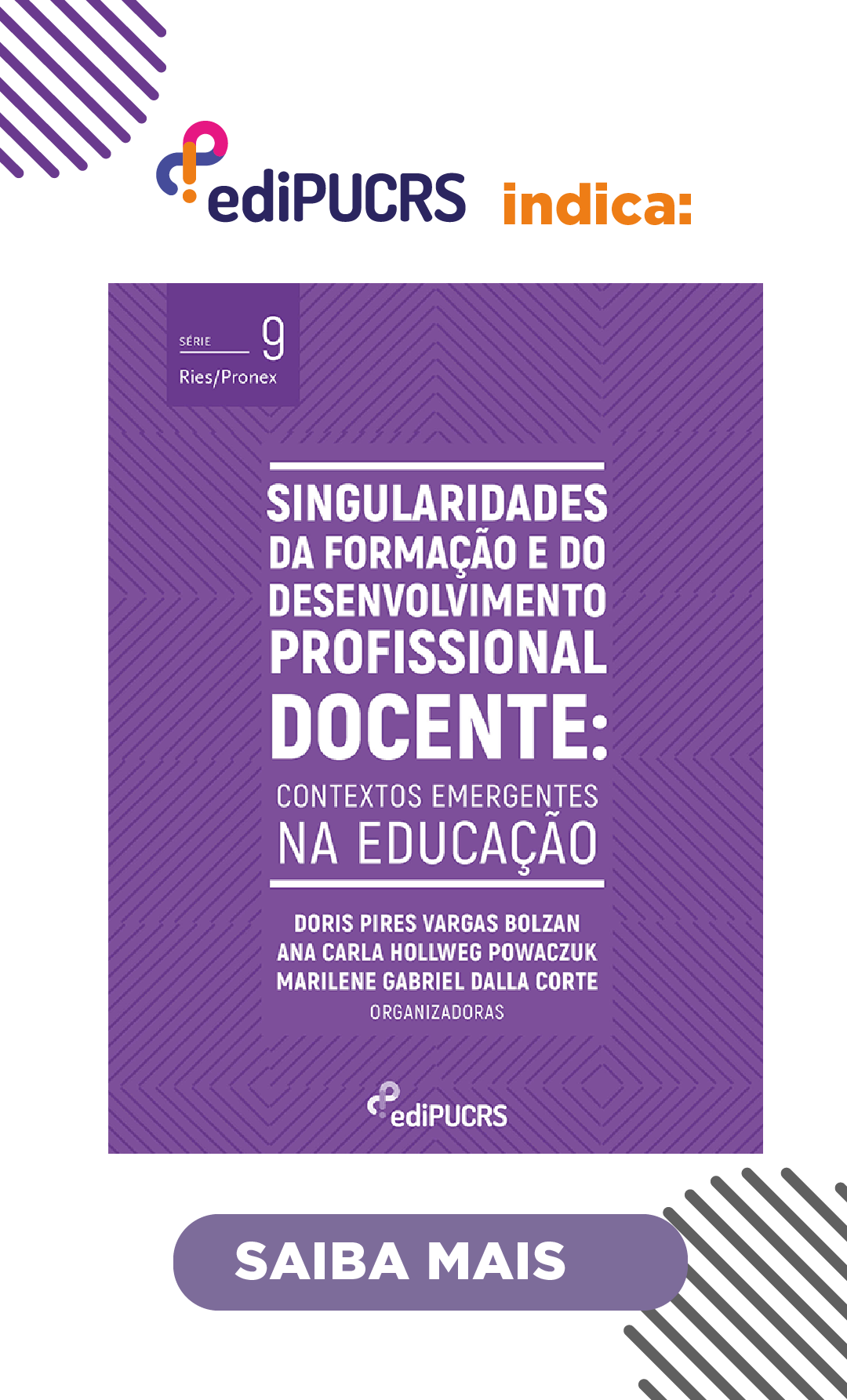School (in)discipline: challenges and opportunities for teachers of the XXI century
DOI:
https://doi.org/10.15448/2179-8435.2015.1.18145Keywords:
Discipline. Indiscipline. Pedagogical Practice. School. University.Abstract
The research will deal with conceptual tensions, such as discipline/indiscipline, authority/power/ authoritarianism, freedom/licentiousness, order/disorder, limit/requirement, rigidity/rigor, questioning them, confronting them ethically and epistemologically. The theoretical framework is based on Aquino, Bernstein, Brunner, Correia and Matos, Fischman and Torres, Freire, Foucault, Giorgio, Macedo, Piaget, Silva and Taille. This study relied on the action research referential (Minayo and Thiollent) with teachers of basic education in a city of Montenegro/RS, who participated in the Research Project (In)disciplining discipline: construction process of teaching practice and school routine, a partnership between Municipal Schools, the City Department of Education
and UNISINOS and this production an integral part of our consideration of the work done during a project that lasted 03 years. The study analyzes the generating causes of indiscipline in the school environment, how each
teacher seeks to deal with the same in your classroom and how teachers are preparing to face the challenge of indiscipline in educational context.
Downloads
References
AQUINO, Julio Groppa. Pela ritualização da sala de aula. Revista Nova Escola, p. 14, jan.-fev. 2002.
AREND, Hannah. Entre o passado e o futuro. 2. ed. São Paulo: Perspectiva, 1979.
BERNSTEIN, Basil. Pedagogy, symbolic control and identity: theory, research, critique. London: Taylorand Francis, 1996.
BRUNNER, José J. Educação: Cenários de futuro. Novas tecnologias e sociedade da informação. Rio de Janeiro: PREAL,
CORREIA, José Alberto; MATOS, Manuel. Solidões e solidariedade nos cotidianos dos professores. Porto. Portugal: ASA Editores II, 2001.
FISCHMAN, G.; TORRES, C. A. Popular education: building from experiences. In: BROOKS, A.; WATKINS, K. (Ed.). Learning through action technologies. San Francisco: Jossey Bass, 1996.
FOUCAULT, Michel. Microfísica do poder. Rio de Janeiro: Graal, 1979.
FOUCAULT, Michel. Vigiar e punir: história da violência nas prisões. 10. ed. Petrópolis: Vozes, 1993.
FREIRE, Paulo; SHOR, Ira. Medo e ousadia: cotidiano do professor. 5. ed. São Paulo: Paz e terra, 1996.
FREIRE, Paulo; FAUNDEZ, Antonio. Por uma pedagogia da pergunta. Rio de Janeiro: Paz e terra, 1985.
FREIRE, Paulo. Pedagogia da esperança. 3. ed. Rio de Janeiro: Paz e Terra, 1994.
FREIRE, Paulo. Pedagogia da autonomia. São Paulo: Paz e Terra, 1997.
FREIRE, Paulo. Pedagogia da indignação: cartas pedagógicas e outros escritos. São Paulo: UNESP, 2000.
FREIRE, Paulo. Pedagogia do oprimido. 11. ed. Rio de janeiro: Paz e Terra, 1982.
FREIRE, Paulo. Ação cultural para a liberdade. 3. ed. Rio e Janeiro: Paz e Terra, 1978.
GIORGIO, Cristiano Di. Escola nova. São Paulo: Ática, 1986.
MACEDO, Lino de. Ensaios pedagógicos: como construir uma escola para todos? Porto Alegre: ARTMED, 2004.
Minayo, M. C. de S. Pesquisa social: teoria, método e criatividade. 24. ed. Petrópolis, RJ: Vozes, 1994.
OLIVEIRA, Francisco de. Os direitos do antivalor. Petrópolis: Vozes, 1998.
PIAGET, Jean. O julgamento moral na criança. São Paulo: Mestre Jou, 1977.
SANTOS, Boaventura de Souza. A crítica da razão indolente: contra o desperdício da experiência. São Paulo: Cortez, 2000.
SILVA, Maria Aparecida da. Disciplina. Revista Presença Pedagógica, v. 3, n. 17, p. 86-91, set.-out. 1997.
TAILLE, Yves de La. Limites: três dimensões educacionais. São Paulo: Ática, 1998.
THIOLLENT. Michel. Metodologia da pesquisa-ação. 12. ed. São Paulo: Cortez, 2003.
Downloads
Published
How to Cite
Issue
Section
License
Copyright
The submission of originals to Educação Por Escrito implies the transfer by the authors of the right for publication. Authors retain copyright and grant the journal right of first publication. If the authors wish to include the same data into another publication, they must cite Educação Por Escrito as the site of original publication.
Creative Commons License
Except where otherwise specified, material published in this journal is licensed under a Creative Commons Attribution 4.0 International license, which allows unrestricted use, distribution and reproduction in any medium, provided the original publication is correctly cited.





